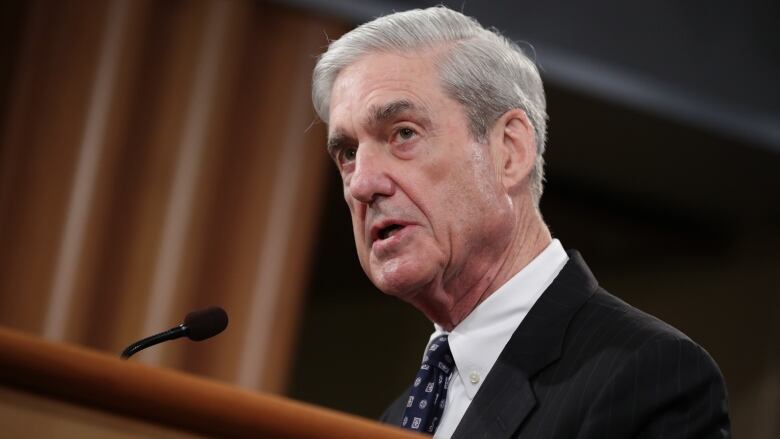Robert Mueller to testify publicly before U.S. House committees
Former special counsel will talk about the Trump-Russia report July 17

U.S. Democrats say Robert Mueller has agreed to testify publicly before the House judiciary and intelligence committees after both panels issued subpoenas to him Tuesday evening.
House judiciary committee chair Jerrold Nadler and House intelligence committee chair Adam Schiff said in a joint statement that the former special counsel has agreed to testify on July 17 about the Trump-Russia report he issued in April.
The committees have been in negotiations with Mueller for more than two months about his testimony. But he has been hesitant to testify or speak about the investigation beyond a public statement he issued last month.
In a letter to Mueller accompanying the subpoenas, the committee chairmen said "the American public deserves to hear directly from you about your investigation and conclusions."
Speaking later on MSNBC, Schiff said Mueller did not want to testify. "I don't think the special counsel's office would characterize it as a friendly subpoena. He did not want to testify, he made that very clear. Nonetheless, they will respect the subpoena."
Schiff said every committee member will get a chance to question Mueller.
Asked if he is worried the White House will try to block the testimony, Nadler predicted, on CNN, that Mueller won't let anybody tell him to defy a lawful congressional subpoena.
Trump tweeted his response to the news.
Presidential Harassment!
—@realDonaldTrumpIn his 448-page report, Mueller concluded there was not enough evidence to establish a conspiracy between Trump's presidential campaign and Russia, which was the original question that started the investigation. But he also said he could not exonerate Trump on obstruction of justice. The report examined several episodes in which Trump attempted to influence the investigation.
The testimony from the ex-FBI director is likely to be the most highly anticipated congressional hearing in years, particularly given Mueller's resolute silence throughout the two-year investigation. He never responded to any of the public attacks from Trump, nor did he ever personally join his prosecutors in court or make announcements of criminal charges from the team.

His sole public statement came from the Justice Department podium last month, when he sought to explain his decision to not indict Trump or to accuse him of criminal conduct. He also put lawmakers on notice that he did not ever intend to say more than what he put in the report.
"We chose those words carefully and the work speaks for itself," he said at the news conference. "I would not provide information beyond what is already public in any appearance before Congress."
Those remarks did little to settle the demands for his testimony, with Democrats and Republicans likely to confront him on his team's conclusions, his reaction to a drumbeat of incessant criticism from the president and his personal opinion about whether Trump would have been charged were he not the commander-in-chief.
The Justice Department declined to comment.
Republicans have criticized Democrats for their robust investigations of the president. House Minority Leader Kevin McCarthy, questioned why they would still want to hear from Mueller after the lengthy report was issued, saying "He said he didn't want to talk to us anymore, didn't he?"
But Georgia Rep. Doug Collins, the top Republican on the judiciary panel, has said he has no objections to Mueller's testimony.
"May this testimony bring to House Democrats the closure that the rest of America has enjoyed for months, and may it enable them to return to the business of legislating," Collins said.